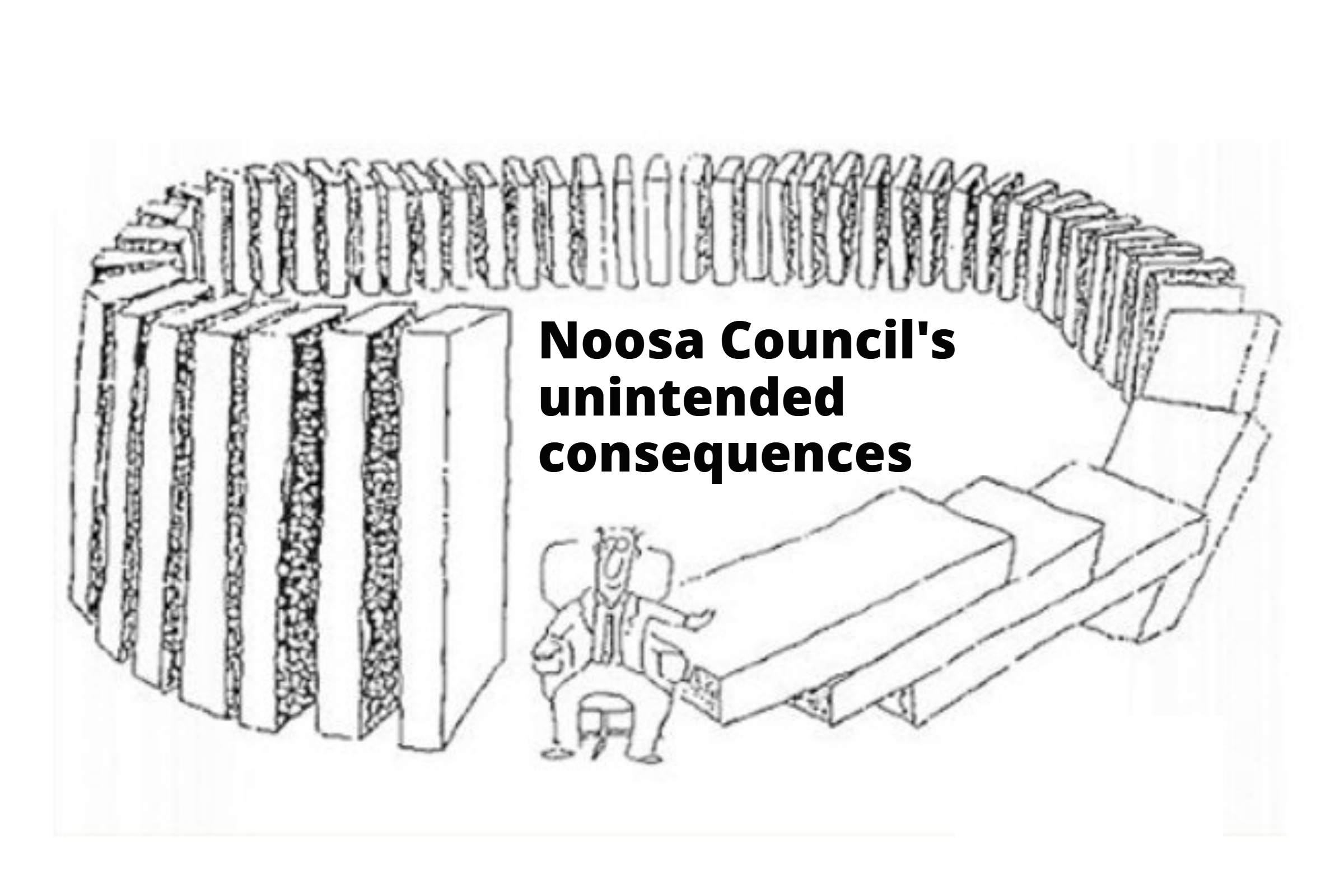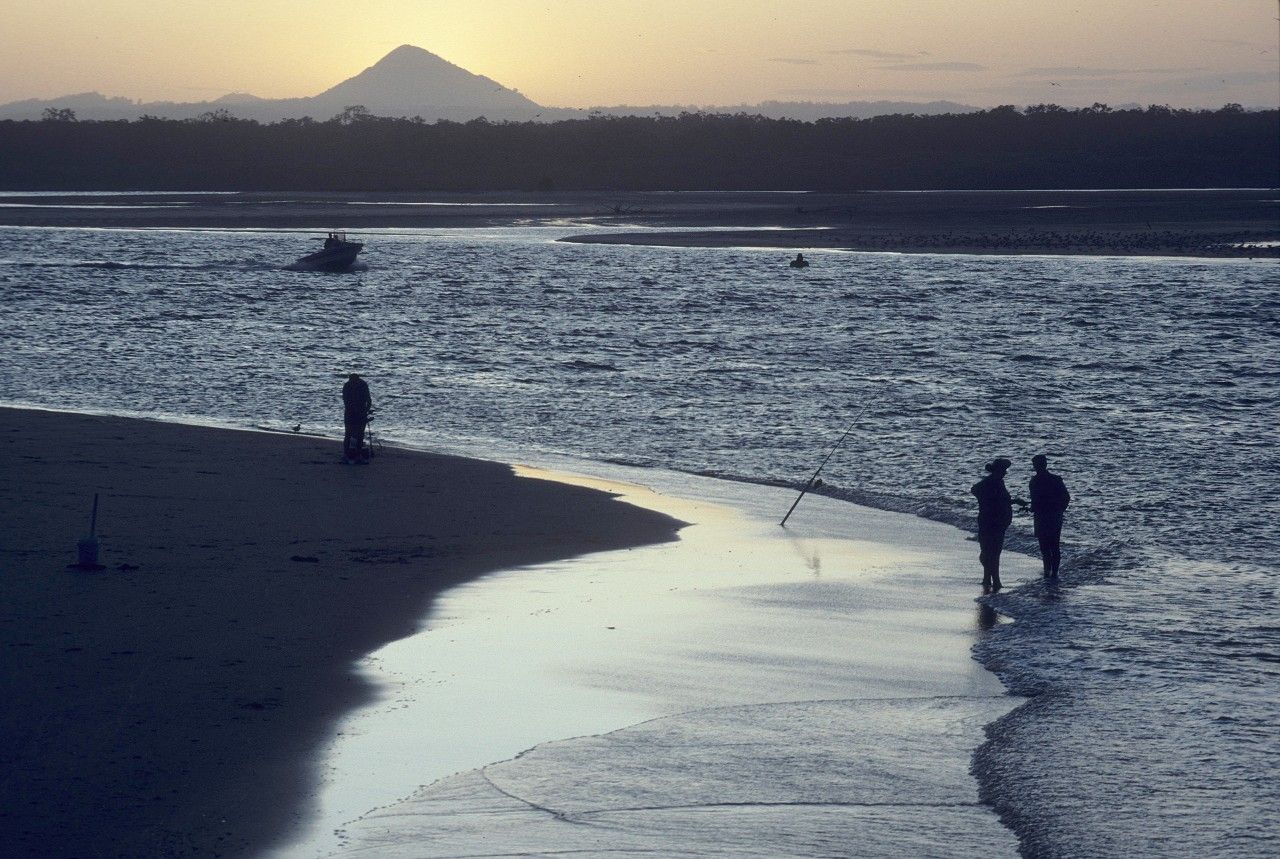Here’s a curly question for our council and our community. How, in the course of just a few years, did many of our traditional resorts start to feel like second class citizens in this international tourist destination we live in? And has our Council made a monumental blunder?
The world has moved quickly, while flat-footed policy-makers have been left behind. Noosa Council’s belated and misguided attempt to respond has led to unintended consequences and hurt businesses doing ‘the right thing’.
Just a few years ago there seemed to be agreement on the benefits of tourism – more jobs for us and our children, better public facilities, more varied shops, restaurants, and things to see and do. Everybody wins.
We believe the foundation of this harmony was that tourist accommodation was largely concentrated in purpose-built facilities with on-site management or managed by licensed agents. It was a system in balance.
The growth of the ‘sharing economy’ and giant online booking platforms changed this dynamic.
Now investors can join the stampede to short stay letting without necessarily living in the area (the vast majority don’t) and without having to deal with issues of noise, rubbish, parking and so on.
In contrast, resorts have a manager/letting agent who is engaged by the Body Corporate to be on site from a physical office (Reception) and ensure that the by-laws – particularly those concerning behaviour – are followed by all occupiers, including tourists.
Resorts operate in one of the most highly regulated environments in Queensland. Most holiday accommodation in Queensland’s tourist areas is in Community Titles Scheme (CTS) or ‘resorts’ where the units are owned by individuals.
A Resident Manager as Letting Agent must have a restricted or full real estate license under the Property Occupations Act (POA), undergo police checks, operate a trust account and operate at a professional standard.
Enter Noosa Council…
Just as resorts were getting back on their feet from the worst of Covid, Noosa Council stepped in with dramatic rate changes that made no sense.
They classified resorts under the same transitory accommodation general rate as Airbnb type properties that were popping up like mushrooms in residential streets. All were plonked in the same basket. With no warning, owners of short stay let units in resorts were slugged with a 67% increase in general rates.
As a result, many owners, feeling estranged and concerned about making ends meet, decided to sell. This council blunder created a new phenomenon where short stay let units in resorts are now selling to owner occupiers and increasingly being rented permanently.
The changes mean that there can be three different rating levels in a single complex.
- A unit owner who lives in their own unit pays a minimum of $1,217;
- if the unit is let on a permanent basis, the minimum is $1,461;
- and if tourist let, the minimum is $2,434.
Council’s rating policy has encouraged owner occupiers and permanent rentals into resorts as the rates are lower than a unit used for short stays.
The increased numbers of owner occupiers and permanent tenants living with holidaymakers creates conflicts just like short term letting is doing in residential areas.
Another regulation causing grief to resorts has been the Noosa Council Short Stay Letting (SSL) Local Law. Why should it apply to short stay units in a complex let by a resort manager? Managers are licensed and already operate at best practice, above the code of conduct set by the local law.
The other unfair aspect of the SSL local law is that it exempts some resorts while adding duplicated procedures, costs and fees (temporarily waived in 2022) to others.
Most Councillors agree that resorts are not the source of the problem of ‘bad’ tourism. By failing to address these issues brought to their attention, Noosa Council has demonstrated that it is out of touch with local resort businesses and managing tourism in Noosa.
When will Noosa Council collaborate with local industry and residents to deliver effective policy to encourage tourists to stay in purpose-built accommodation where tourism is better managed?
Likewise, when will the Queensland Government ensure that local government policy is aligned with the overall state government direction regarding small investors and businesses?
We know the solution is simple: concentrated tourism belongs in places like resorts – where they and their neighbours are catered for. Residential areas should be, as far as possible, places where people reside.
Cathy Parry-Moule, Marketing GM, The Islander Noosa Resort


This Post Has 5 Comments
Problem is the home owners and long term renters who are NOT criminals have to suffer the crime that STAs and AIrBnBs attract! We are NOT equipped to deal with this fallout – I can’t afford to fix my home from the recent burglary, much less install CCTV, better security doors/ window fittings, etc.
Thank you for raising this issue Cathy. Noosa Council seems to see STA as a revenue raising opportunity and a way to increase tourist accommodation outside the traditional tourist accommodation operators. If one was cynical, one could suggest the poor implementation of the new STA local law reflects a lack of commitment on the part of the Council to manage STA in a meaningful way. As a result residents and traditional accommodation owners will continue to be negatively impacted.
Dear Jeanette, thank you for your concise and insightful comment. Most of the Councillors say they appreciate the impact on resorts but words are easy and so, as you say, resorts and residents continue to be negatively impacted… we still live in hope though! Bula Cathy
Dear Paul, thank you very much for your comment, appreciated. We are very appreciative of Noel and his Noosa Matters’ team for the support publishing the article and helping us get our message out. Bula Cathy
Well summarised, Cathy. What a mess has been created.
The big problem with all this is that the solutions are very clear. And so logical. However, nobody seems to want to hear them and act. Meanwhile, council is off on other “projects” at “full speed ahead” apparently.